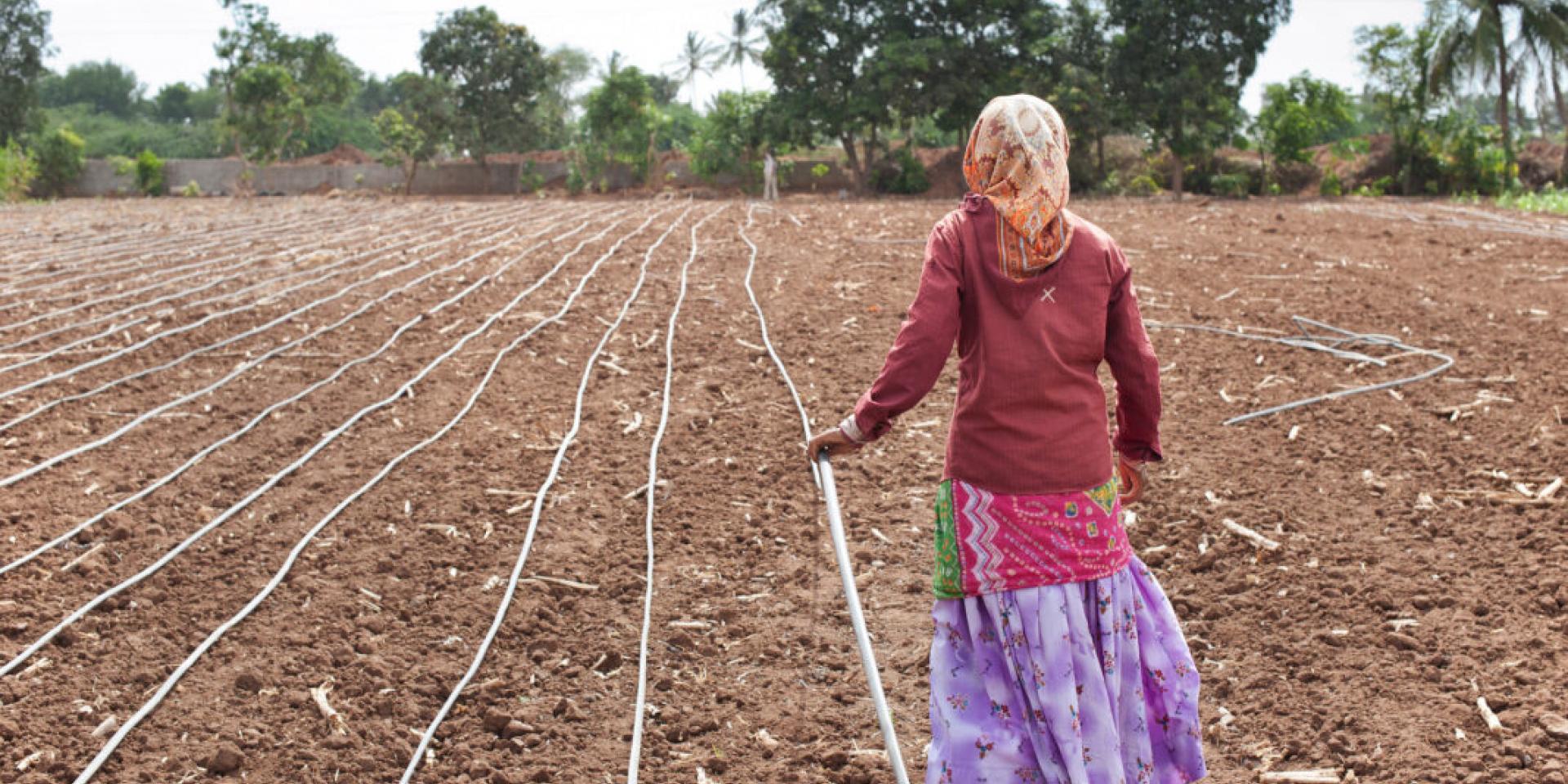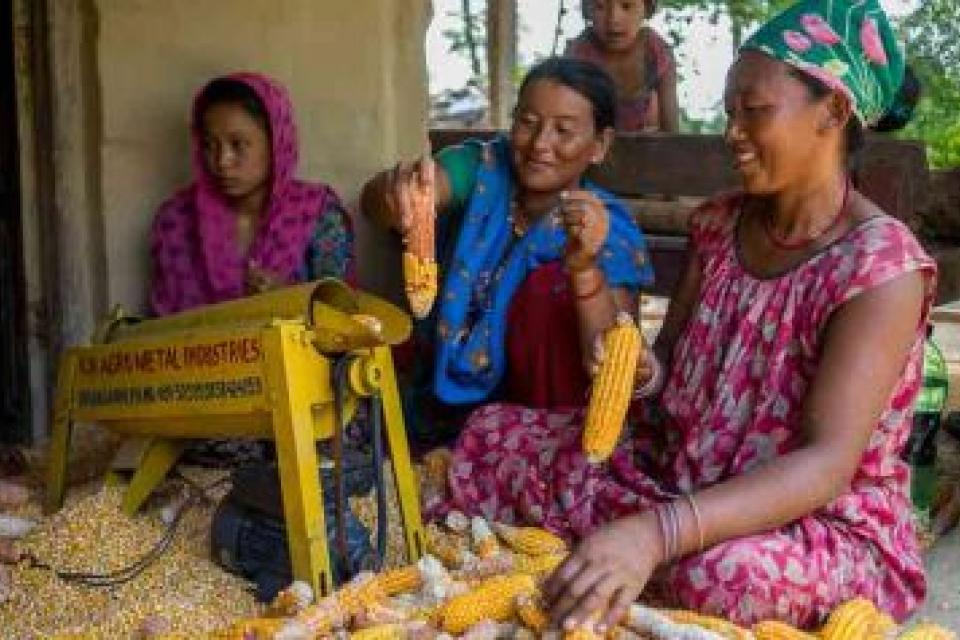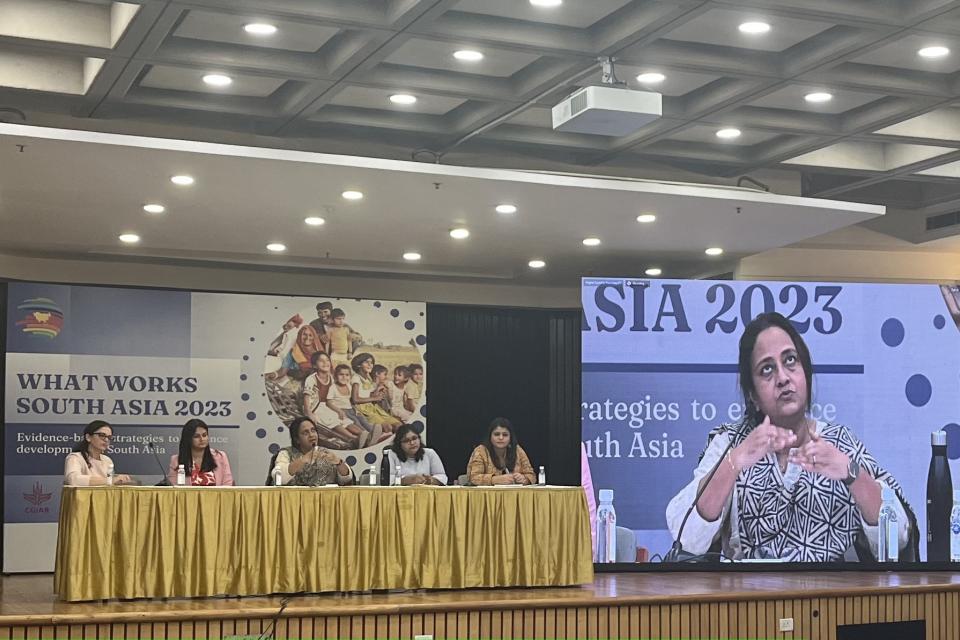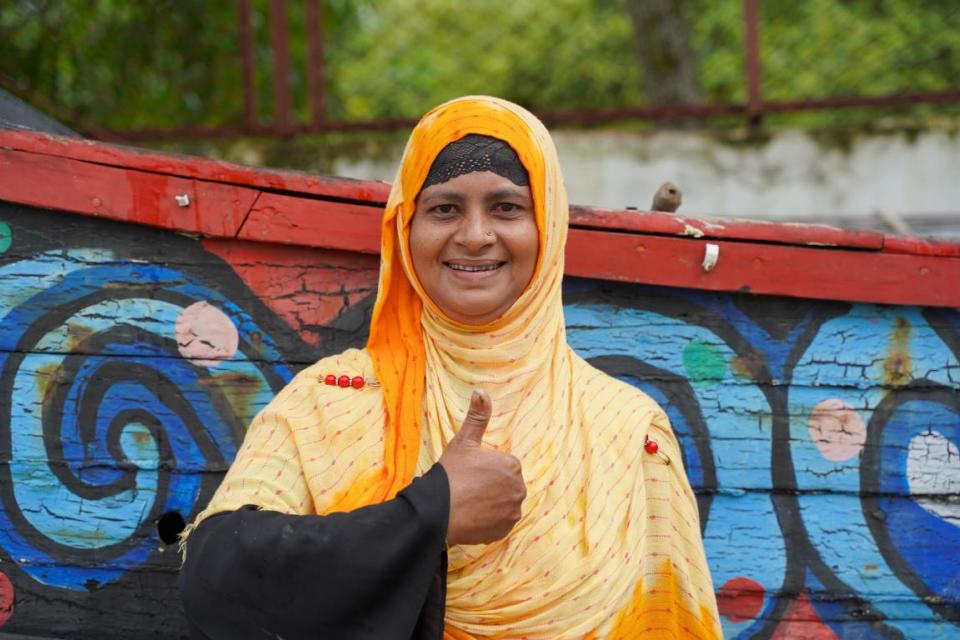Women’s collectives as champions of climate-smart agriculture and water resilience
 Photo: Himish John Appleby/IWMI
Photo: Himish John Appleby/IWMI
Collective action among women is found to enhance water efficiency, promote conservation and ensure equitable access to water.
On International Rural Women’s Day, the International Water Management Institute and the International Maize and Wheat Improvement Center (CIMMYT) celebrate the vital role women play in shaping sustainable water, land, and food systems, especially in rural regions facing resource challenges. Supported by the CGIAR Gender Platform, the two centers implement the “Learning in Tandem” project, which highlights the transformative power of women’s collectives across the Middle East and North Africa and South Asia. These collectives are driving gender equity and fostering resilience in agriculture by managing water resources, enhancing land productivity and ensuring food security. In Morocco and India, these collectives have adopted climate-smart farming practices, promoted water conservation and empowered women economically and socially. Their efforts highlight the importance of local leadership in building climate resilience and sustainable agricultural development, providing a blueprint for communities globally.
Women’s collectives: Guardians of water-dependent agri-food systems
Women’s collectives serve as a vital institution for sustainable water and other natural resource management within agri-food systems. In regions where water scarcity and inefficient irrigation threaten agricultural productivity, collective action among women is found to enhance water efficiency, promote conservation and ensure equitable access to water. Women collectives in Morocco and India ensure optimal resource use in agriculture by employing water-saving technologies, adopting climate-resilient crops and implementing drought-tolerant farming practices. These efforts not only sustain agriculture but also mitigate the impacts of water shortages, ensuring food security and long-term environmental health.


